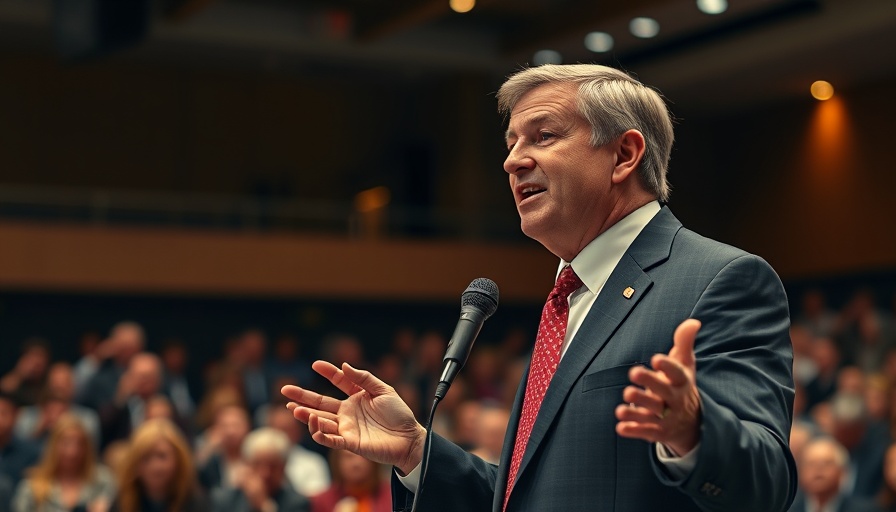
Trump’s Ambitious Plan: How US Could Become the Crypto Capital of the World
On March 2, former President Donald Trump unveiled his vision for a U.S. strategic cryptocurrency reserve, signaling a bold commitment to transforming America into the 'Crypto Capital of the World.' The proposed reserve will comprise five prominent cryptocurrencies: Bitcoin (BTC), Ethereum (ETH), Ripple (XRP), Solana (SOL), and Cardano (ADA). Trump's announcement comes in the wake of a significant downturn in the crypto market, which had recently lost a staggering $800 billion in total value. Following his declaration, traders responded with enthusiasm, propelling the prices of several digital currencies upward: XRP surged by 32%, ADA skyrocketed by 63%, and BTC climbed by 11% just hours after the news.
The Vision of a National Crypto Reserve
This initiative marks a pivotal shift in the government’s approach to digital assets, previously met with skepticism during the preceding administration. Trump described the crypto reserve as a method to "elevate this critical industry after years of corrupt attacks from the Biden Administration." He emphasized the importance of integrating major cryptocurrencies into America’s financial framework, making it clear that BTC and ETH would be at the core of this strategic stockpile.
Understanding the Implications of This Reserve
While the announcement has invigorated the crypto community, it also brings to light numerous concerns about government involvement in cryptocurrency markets. Experts warn that extensive control could lead to regulatory overreach and market manipulation. Adam Blumberg, co-founder of Interaxis, articulated these fears, noting, "The U.S. government shouldn’t be picking winners and losers in the crypto market. It puts too much power in the hands of the federal government." There’s also apprehension about the technological and logistical challenges of maintaining a secure crypto reserve, given that these digital assets differ fundamentally from traditional stockpiles like gold.
Market Reactions and Future Predictions
Market analysts suggested that the announcement might initiate a new bull run for cryptocurrencies. Following Trump's declaration, the total market capitalization of cryptocurrencies surged by over $300 billion within hours. This move could indeed reaffirm the U.S.'s position on the international stage regarding digital assets. However, with questions still lingering over how the reserve will be managed, clarity is expected at the upcoming White House Crypto Summit.
Counterarguments: Skepticism from Industry Experts
Despite the initial hype, many crypto enthusiasts remain skeptical about including non-Bitcoin assets in the reserve. Analysts argue that altcoins, such as XRP and ADA, are more akin to traditional tech investments, raising questions about their stability and legitimacy as reserve assets. Historical parallels can be drawn — just as the Strategic Petroleum Reserve aims to stabilize oil markets, a crypto reserve could reshape perceptions of digital currencies based on government valuations.
Regulatory Considerations and Long-term Risks
The Federal Reserve has long controlled monetary policy primarily through traditional assets like fiat currency. Introducing a federal crypto reserve raises questions about its interplay with established financial mechanisms. Could such a reserve assist in stabilizing crypto markets like central banks do with currencies? The management of digital assets invites additional layers of complexity, including secure digital storage solutions and potential interventions by foreign governments.
What the Future Holds for Cryptocurrency
The announcement has undoubtedly galvanized support among Trump’s base and the broader crypto community, but the operational realities of a strategic crypto reserve remain to be seen. Trump's administration has been perceived as a transformative force within the crypto realm — could this latest initiative redefine the way cryptocurrencies are integrated into America’s fiscal policies moving forward? Only time will tell, but the upcoming Crypto Summit could mark another significant step toward realizing this ambitious vision.
In an era where digital innovations are rapidly changing traditional financial systems, staying informed about these developments is crucial for investors and policymakers alike. As the landscape shifts, understanding these intricacies can offer valuable insights into future investments and regulatory trends.
 Add Row
Add Row  Add
Add 




Write A Comment